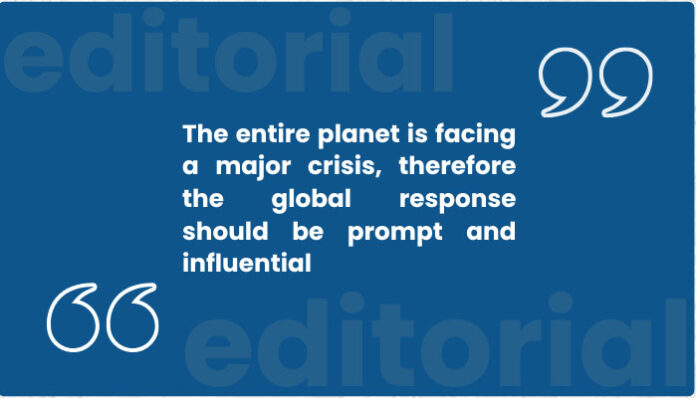THIS week, during the ASEAN Summit in Kuala Lumpur, President Ferdinand Marcos Jr. flipped a commitment to push for evidence-based solutions in tackling the impacts of climate change.
The 69-year-old head of state, who painted a picture of climate change as the most defining and ripping challenge today, called on nine other ASEAN leaders to strengthen predictable, accessible and adequate finance to enable the soon-to-be 58-year-old regional group to achieve its ambitions and guard the future of its populations.
The President was error-free when he said nearly half the population of ASEAN – with over 672 million people as of 2024 – is confronted by significant climate-related dangers.
In July last year, the Philippines, an archipelagic nation of 117 million, was elected to host the Loss and Damage Board, which aims to provide financial assistance to vulnerable countries dealing with the devastating effects of climate change.
‘’As the host of the Board of the Fund for responding to Loss and Damage, the Philippines will continue to advocate for scientific and evidence-based, investment-led, and transformative solutions to the climate crisis,’’ Mr. Marcos told colleagues during the two-day 46th ASEAN Summit which ended Tuesday.
Ten years ago in Paris, world leaders from 197 countries pledged to put people first and reduce their countries’ greenhouse gas emissions, determined to limit global warming to well below 2ºC and ideally to 1.5°C.
World leaders and climate negotiators have since been meeting at annual COPs or Conference of the Parties – the countries that signed and are the decision-making body of the United Nations Framework Convention on Climate Change or UNFCCC – where nations take stock of their ability to meet their commitments to reduce emissions.
Today, we see the entire planet facing a major crisis, therefore the global response should be prompt and influential.
Climatologists and other authorities are saying progress by world governments has been blisteringly slow and many commitments to reduce carbon emissions have been set, but few are binding and targets are often missed.
Recent talks have focused on climate finance – money to help poorer countries adapt to climate change and reduce emissions, with rich countries pledging $100 billion in annual funding to help developing countries reduce emissions and manage the impacts of climate change.
But this thus far has not materialized and experts say much more money is needed.








